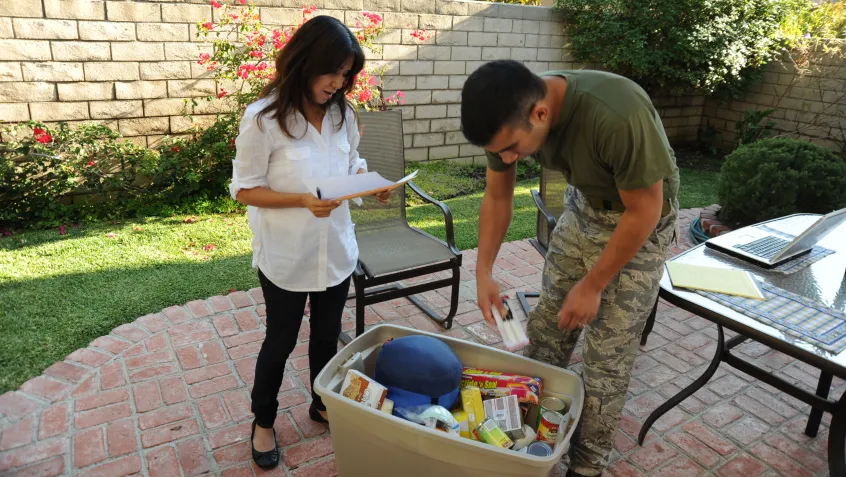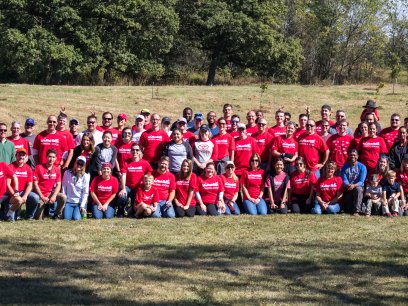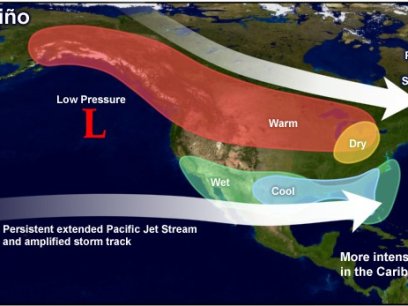
Extreme weather can occur anywhere, at any time. September is National Preparedness Month, a reminder that everyone needs to prepare for the natural disasters and emergencies that impact us where we live, work, and play.
In 2017, extreme weather and climate events claimed thousands of lives across the United States, and 16 of these events caused damages that each led more than $1 billion in losses—with a total price tag of more than $300 billion. Drought, hail, flooding, tornadoes, and severe storms each rocked the nation, but the standouts were the hurricanes and wildfire. In August and September, hurricanes Harvey, Irma, and Maria each left paths of devastation, and in October the California firestorms were record-setting in their destruction. While the events of 2017 were historic in their impact, and the country continues to rebuild in their wake, it's important to remember that a weather event doesn't have to break records to pose a threat to you or your family.
Luckily, there are things you can do right now to help prepare your family, friends, and community for whatever Mother Nature has in store.
Make a Plan
If a disaster strikes, how will you get in touch with members of your household? Where will you go if you need to leave your home? Do you have the supplies and information you need? Don't be caught off-guard: make a plan and make sure every member of your household knows what to do in an emergency. These tips and tools will get you started:
- Create an emergency communication plan so that everyone has the information they need to get in touch.
- Plan for your risks. Get the facts on disasters where you live and know what you will do if you need to evacuate.
- Build an emergency supply kit. Collect basic items you may need in an emergency.
- Tailor your plan. Kids, older adults, pets, people with disabilities, and people with health conditions may need special assistance or supplies during a disaster.
Lend a Hand
How can you help your community prepare and respond to natural disasters and other emergencies?
- Participate in National PrepareAThon! Day on September 15 and join millions of Americans taking action to prepare.
- Volunteer. Many community organizations offer free education and training for volunteers. Learn more about opportunities with Certified Emergency Response Teams, American Red Cross, Medical Reserve Corps, and others.
Sources:
- Chappell, Bill. 2017. "Category 5 Hurricane Irma Brings 175-MPH Winds To Bear on Caribbean Islands." NPR, September 5. http://www.npr.org/sections/thetwo-way/2017/09/05/548606014/category-5-hurricane-irma-brings-175-mph-winds-to-bear-on-caribbean-islands
- Lamothe, Dan, Jessica Contrera, and Sarah Larimer. 2017. "Texas Continues Harvey Recovery Efforts as Hurricane Irma Looms in the Atlantic." Washington Post, September 5. https://www.washingtonpost.com/news/post-nation/wp/2017/09/04/texas-continues-harvey-recovery-efforts-as-hurricane-irma-looms-in-the-atlantic/?utm_term=.302b7397a4ae.
- Mejia, Brittny. 2017. "Weather Delivers Blow to La Tuna Fire's Spread: 'Mother Nature Kicked In.'" Los Angeles Times, September 4. http://www.latimes.com/local/california/la-me-weather-fire-20170904-story.html
- National Hurricane Center. 2017. "Hurricane Irma Public Advisory." NOAA, September 5. http://www.nhc.noaa.gov/text/refresh/MIATCPAT1+shtml/312031.shtml
- Smith, Adam B. 2018. "2017 US billion-dollar weather and climate disasters: a historic year in context." Climate.gov. Accessed September 4. https://www.climate.gov/news-features/blogs/beyond-data/2017-us-billion…;


